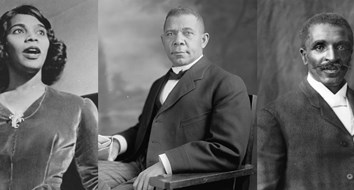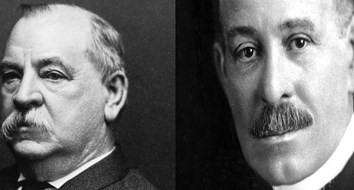In this Congressional election year, expect to be barraged with rhetoric about “getting America moving again,” “creating jobs, jobs, jobs,” and “stimulating the economy.
Politicians love to promise the future and ignore their own handiwork of the past. They typically spend much more time concocting new schemes for intervention than they spend searching for old ones that deserve to be repealed.
What really deserves our attention are those specific barriers to economic opportunity erected by government—regulations, taxes, licensure laws, unfunded mandates, building and zoning codes, special privileges for organized labor, subsidies to business, chronic budget deficits that consume needed capital, a welfare system that puts a premium on idleness and a penalty on work, and an education monopoly that fails to teach children as it vacuums their parents’ wallets, to name a few.
Each 1 percent increase in the federal tax burden, report economists William Dunkelburg and John Skorburg for the Cato Institute, results in a 1.8 percent decline in national output and a 1.14 percent decline in national employment—a loss of about 1.5 million jobs. A study from the National Center for Policy Analysis points out that a 1 percent decrease in the tax rates on all saving and investment income would generate enough new investment to increase the nation’s output by $25 billion.
Dozens of studies have shown that excessively restrictive zoning laws, building codes, and property taxes constitute the greatest obstacles to affordable housing for the poor. Minimum wage laws, by making it illegal to employ people whose skills are worth less than Congress decrees, keep hundreds of thousands from getting a start in the job market. Endless regulations designed to curtail entry into markets from trucking to taxis freeze out many a would-be entrepreneur from creating new businesses.
I’m not talking about basic laws which prevent or punish harm to others. I’m talking about the primary social disease of our age—government beyond its proper bounds, playing Robin Hood, Santa Claus, and Mother Hen all at the same time, inflicting real damage to real people who have victimized no one. Economists, at least, are increasingly taking a critical eye to such policies.
It must be understood, however, that economic analysis will not by itself make the case for ridding ourselves of these man-made obstructions. It is powerful, but still not enough, to simply tote up the numbers and show how many jobs are erased by particular actions of government. It is not enough to produce graphs and models that plot the fluctuations in gross national product.
What is sorely needed in the discussion is a recognition of the moral backwardness that so many of these barriers to economic opportunity represent. Dismantling the barricade requires that we who advocate freedom of enterprise seize the high ground. We must appeal to what most people instinctively know is right, not just what makes the cash register sing. We must learn to speak of the deleterious actions of government in terms of trampled rights, broken dreams, and ruined lives.
For instance, when the city of Detroit in my state imposes—as it does—a tax burden that is seven times the average burden in Michigan municipalities, that is not simply bad economics. It is an affront to every citizen of that city who wants the best for his family, who wants simply a chance to be productive. Those high taxes should evoke visions of hungry children, of a boarded-up business that was once someone’s dream, of homes torn apart because of the breadwinner’s inability to pay the bills of irresponsible politicians.
In case a reader might think I’m dealing in generalities, let me provide a very specific example also from my state of Michigan. As is the policy in 41 other states which regulate the business of trucking, the “authority” to haul goods within the state is granted by state government. The Michigan Public Service Commission is empowered to determine who can be in the trucking business, what goods they can and can’t transport, where they can haul them, and what rates they can charge their customers. Doing business as a Michigan trucker means playing an elaborate and costly game of “Mother, May I?” with state bureaucrats—filing forms and begging permission every step of the way.
The regulatory apparatus is not designed to protect the public from any harm. Rather, it is a means by which some of the regulated firms discourage newcomers and keep rates artificially high. One company, known as Federal Armored, Inc., ran afoul of these rules recently. A Public Service Commission ruling stripped the company of its right to do intrastate business in Michigan, resulting in its severance of more than 160 employees.
There were no public health or safety questions involved, no alleged fraud, and no complaints against Federal Armored by any of its customers or employees. The company’s “crimes” boiled down to nothing more than charging customers less than the fixed rate and failing to file worthless paperwork with state regulators. The PSC itself brazenly asserted, “The absence of shipper objection . . . is irrelevant to Federal Armored’s fitness” to do business in Michigan!
Why is it that people who go to work for government as officeholders or bureaucrats are known as “public servants”—even when highly paid? Why isn’t “public servant” a term reserved for those entrepreneurial heroes in the private sector who create jobs, invent machines, cure illnesses, build businesses, serve customers, and pay the bills of government through their taxes? When the barriers erected by “public servants” crush the self-reliance of citizens like those at Federal Armored, where is the outcry of righteous indignation from the public or the press?
What regulators did to Federal Armored and what countless other acts of government inflict upon people every day is morally repugnant. Such deeds are throwbacks to less enlightened times when the common thief and the uncommon prince were indistinguishable but for their robes.
The campaign to restore our liberties and enhance our economic opportunities must incorporate a personal, moral dimension at its core. A law which suffocates the aspirations of enterprising men and women is more than bad economics. In a free society, it ought to be a moral outrage.





